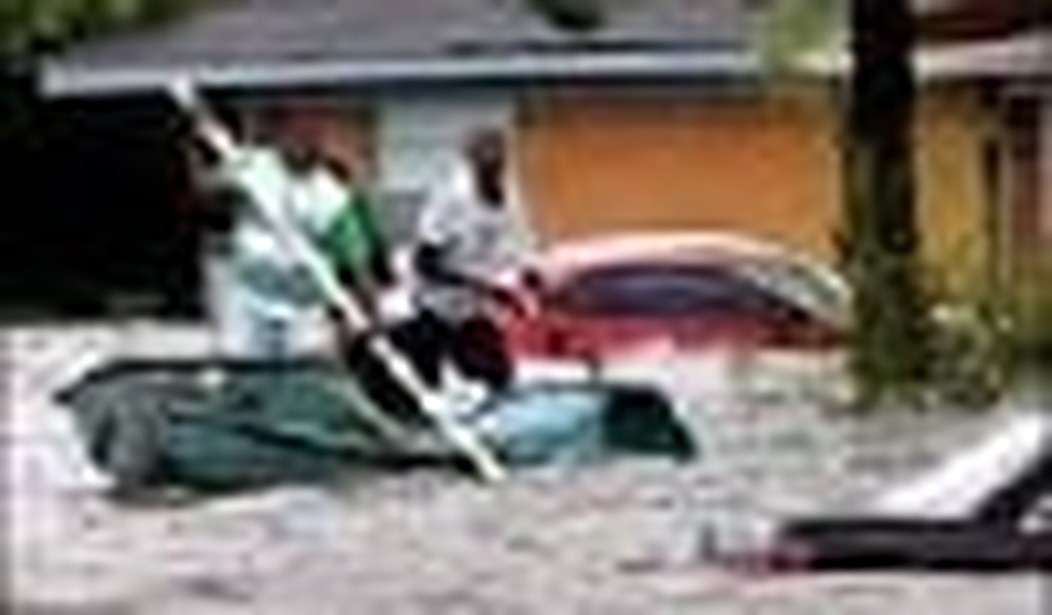Liberals know the best way to get black people interested in a political issue: to racialize it and couch it in language like “equity” and “social justice,” and push for yet more government programs. That’s why reports like A Climate of Change: African Americans, Global Warming, and a Just Climate Policy in the U.S. (PDF) are written.
On Tuesday, liberal Congressman James Clyburn spoke at the National Press Club in Washington, D.C., to launch the Commission to Engage African-Americans on Climate Change, a project of the Joint Center for Political and Economic Studies, to encourage blacks to join the global warming debate.
“It is critical our community be an integral and active part of the debate because African Americans are disproportionately impacted by the effects of climate change economically, socially and through our health and well-being,” Clyburn said.
With no Klansman to defend against or whites-only signs to tear down, certain blacks are consumed with searching for racism in a single glance or an innocuous comment or on a magazine cover or under rocks. In this case, they looked for and found racism in the skies. From the report:
- African Americans are thirteen percent of the U.S. population and on average emit nearly twenty percent less greenhouse gases than non-Hispanic whites per capita. Though far less responsible for climate change, African Americans are significantly more vulnerable to its effects than non-Hispanic whites. Health, housing, economic well-being, culture, and social stability are harmed from such manifestations of climate change as storms, floods, and climate variability. African Americans are also more vulnerable to higher energy bills, unemployment, recessions caused by global energy price shocks, and a greater economic burden from military operations designed to protect the flow of oil to the U.S.
The report is a litany of racial disparities. Six states with the highest number of blacks are in the Atlantic hurricane zone. Blacks have higher rates of heat-related deaths. So-called racist stereotypes reduce disaster aid. Sprawl is “institutional racism” that takes away jobs and resources “as whites flee central cities out of racial fear.” And on and on.
(There is no discussion of blacks’ responsibility for these disparities and conditions. The burden rests solely on others, including the government.)
We’re left with the impression that blacks are passive agents caught up in a whirlwind of racist weather and still burdened by the ever-present “legacy of slavery.” According to the report, there’s the potential for “climate change policy that continues and extends this legacy.” That’s why the report calls on blacks to “speak truth to power” and take up the mantle of environmental justice, whatever that means. To narrow racial disparities purportedly caused by a problem whose very existence is debatable, the report contains several suggestions, including raising taxes and redistributing wealth.
Same plot, different setting.
Whether global warming is a pressing issue is beside the point. The emphasis on race is wrongheaded. Why not frame the global warming debate around poverty? Poor people of all colors are disproportionately impacted by changes in the environment. The report certainly mentions poverty, but the Joint Center knows race-neutral policies and solutions are not nearly as provocative and threaten its mission to focus “exclusively on issues of particular concern to African Americans and other people of color.”
Whatever works, right?
Accusing people of racism is a powerful weapon, and liberals know how to wield it. They constantly accuse conservatives of using race to divide, but what’s more divisive than blaming white people for and absolving black people of the “crime” of racial disparities, and proposing to tax one group and transfer the money to another based on race?
With one side wedded to race-based rhetoric instead of race-neutral government policies that would benefit and provide incentives to individuals, our society will remain divided by race. It’s inevitable, unless we rise above the fallen-human tendency to play to the lowest common denominator.
Racializing the weather? That’s pretty low. In the name of “climate justice” and all that is windy, I hope we shall overcome the storm someday.









Join the conversation as a VIP Member